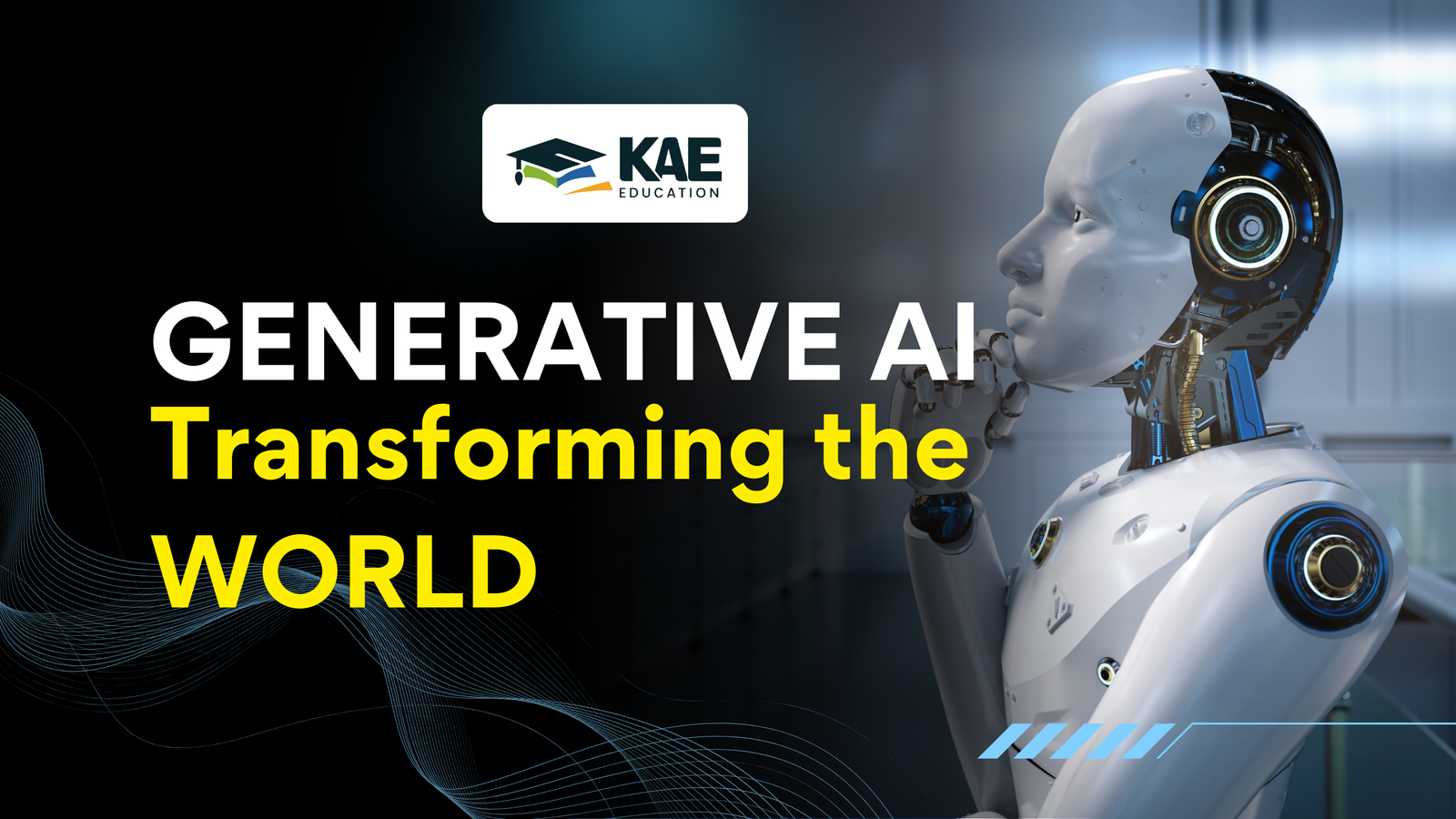Artificial Intelligence (AI) has been a game-changer for businesses and industries worldwide. Among the most disruptive AI advancements is Generative AI—technology that can create text, images, music, and even code with minimal human intervention. From revolutionizing content creation to accelerating scientific research, Generative AI is reshaping industries and redefining what is possible. Let’s explore what Generative AI is, how it works, and its profound impact on the world.
What is Generative AI?
Generative AI refers to a subset of artificial intelligence that generates new content based on existing data. It relies on machine learning models, such as Generative Adversarial Networks (GANs) and transformer-based models like OpenAI’s GPT (Generative Pre-trained Transformer). These models analyze vast amounts of data, learn patterns, and create outputs that mimic human creativity and intelligence.
Key types of Generative AI include:
- Text Generation: AI models like ChatGPT create human-like text for articles, conversations, and scripts.
- Image Generation: Tools like DALL·E produce high-quality, AI-generated images from textual descriptions.
- Music & Audio Generation: AI can compose music, generate realistic voiceovers, and enhance sound design.
- Code Generation: AI-powered tools like GitHub Copilot assist developers by generating functional code snippets.
How Generative AI Works
Generative AI models undergo a training process using massive datasets. The process generally involves:
- Data Collection: AI models are trained on vast datasets containing text, images, audio, or other forms of data.
- Model Training: Using neural networks and deep learning algorithms, the AI learns patterns, structures, and relationships within the dataset.
- Fine-Tuning: Developers refine the model by applying reinforcement learning and human feedback to improve accuracy and reliability.
- Content Generation: Once trained, the AI generates new, realistic content based on user prompts.
Industries Transformed by Generative AI
1. Content Creation & Media
Generative AI is revolutionizing the way content is produced. Writers, marketers, and media companies use AI to generate articles, social media posts, and even entire novels. AI-generated videos and digital art are transforming advertising, entertainment, and graphic design industries.
2. Healthcare & Drug Discovery
In healthcare, Generative AI is aiding medical research by predicting molecular structures and developing new drugs. AI-generated synthetic medical data helps in training algorithms while ensuring patient privacy. Additionally, AI models assist in diagnosing diseases through image recognition in medical scans.
3. Education & E-Learning
Generative AI is personalizing education by creating interactive learning experiences. AI-powered tutoring systems, automated content creation, and personalized study plans are helping students grasp concepts faster and more effectively.
4. Software Development & Automation
AI-powered code generators assist developers in writing code, debugging, and automating repetitive tasks. This not only speeds up software development but also reduces human error, making the process more efficient.
5. Finance & Banking
Generative AI is streamlining banking and finance by generating financial reports, automating customer support, and detecting fraudulent activities. AI-driven chatbots and virtual assistants are enhancing customer experiences in financial institutions.
6. Art & Entertainment
The creative world is embracing AI to generate unique artwork, compose music, and even create entire movie scripts. AI-powered music generators help composers produce melodies, while AI-designed fashion concepts are making waves in the fashion industry.
Challenges & Ethical Considerations
Despite its advantages, Generative AI poses challenges and ethical concerns:
- Misinformation & Deepfakes: AI-generated content can be used to spread fake news or create misleading deepfake videos.
- Bias in AI Models: AI models trained on biased data can produce discriminatory or unfair results.
- Job Displacement: Automation through AI may replace human roles in certain industries.
- Intellectual Property Issues: AI-generated content raises legal questions about ownership and copyright.
The Future of Generative AI
Generative AI is evolving rapidly, with ongoing research focused on improving model accuracy, reducing biases, and ensuring ethical AI development. Future advancements will likely include:
- More Personalized AI Assistants: AI systems that understand individual preferences and provide customized solutions.
- Better Human-AI Collaboration: AI will assist, rather than replace, human creativity and intelligence.
- Enhanced AI Regulation: Governments and organizations will implement stronger policies to address ethical concerns.
Conclusion
Generative AI is transforming the world by pushing the boundaries of creativity, efficiency, and innovation. Whether in content creation, healthcare, or software development, AI-driven technology is enhancing productivity and reshaping industries. As AI continues to advance, it is crucial to balance innovation with ethical considerations, ensuring that its impact benefits society as a whole. The future of Generative AI holds immense potential, and we are only beginning to scratch the surface of its capabilities.

